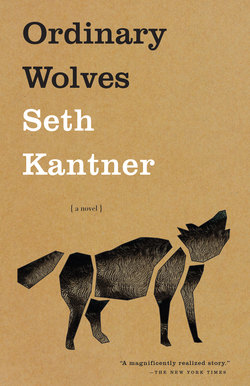Читать книгу Ordinary Wolves - Seth Kantner - Страница 13
На сайте Литреса книга снята с продажи.
ОглавлениеSIX
SPRING WAS MY FAVORITE time of year, and it took extra energy to stay in a bad mood. The sun came home to the Arctic and shone tirelessly on the shimmering world of snow. Midwinter diminished into memory and the Darkness of next winter seemed inconceivable. Warm smells rose from the black soil of exposed cutbanks; birds shrieked and carelessly tossed leftover seeds down out of the birches. It was a season of adventure calling from the melting-out mountains, of geese honking after a continent-crossing journey, of caribou herds parading thousands long on their way north to the calving grounds, sap running and every arctic plant set to burst into frenzied procreation. Spring was the land smiling, and I couldn’t imagine my life without that smile.
But I was sixteen and stunningly lonesome. Iris and Jerry were gone. Iris’s last correspondence-school course lay behind her in the untarnished trail of As. She waited only for paperwork to be officially free. The Rural Student Vocational Program had sent a plane ticket for her to travel to Fairbanks, to apprentice for two weeks, as a teacher. A year ago Jerry had moved there; he lived with a girlfriend named Callie. To me it seemed ironically unfair—since I was eight and first read about Frank, the elder Hardy Boy, I had wanted a girlfriend named Callie. Jerry had probably found the only one in Alaska.
For weeks the April sun lengthened and then Iris returned—transformed—a joyous goddess with black hair curled in a “permanent” that apparently wasn’t, but would last long enough. Her cheeks were flushed, her eyes a happier blue than ever, with three-hundred-and-sixty-seven-dollar contact lenses focusing them. For the first time in more than a decade she could see needles on the spruce. I greeted her the way I had greeted sixteen, with a practiced impassive shrug borrowed from Treason and a safe smile. Her face glowed with jubilation and the wonder of the Outside; mine was dark and hard with snow tan and a grip on leaking uncertainty.
“Fairbanks has eight-story skyscrapers at the university,” she exclaimed.
We were out near the middle of the river chipping a new water hole in the ice. The water in the old one near shore had grown brown with tundra water eddying up from the mouth of Jesus Creek. The ice froze all the way down to the sand in places and we hoped we weren’t working over one of those places. A moose stood in the willows, below the dog yard, breaking down branches, chewing the tips, leaving carnage. Iris wore an aqua nylon jacket she’d bought in Fairbanks and she looked as pretty as Dawna Wolfglove.
“One night we borrowed a master key from a junior. We sneaked up on the roof and dropped the ice cubes out of our root beers. Down on the concrete. My friend Robin found a five-dollar bill in the elevator.”
I rested while Abe shoveled the loose ice out of the four-foot-deep hole. The moose plodded out on the river, crossing toward the far shore. Two more moose stood over there on the bank, long-legged, big ears up, and watchful.
“Oh,” she saw my expression, “a master key opens any door at the university.”
“Yeah? What’s an ice cube?”
“They make ice in freezers, to put in soda pop, Cutuk. They sell it, too, in bags.”
Store-bought ice? I remembered the sweet powerful taste of pop. Tommy Feathers had stopped for coffee when he was hunting wolverine. He tossed a bulged red and white can on the chopping block. “You’ll have tat one springtime,” he joked. He was sober; that meant he was laughing and friendly, not frothing about naluaġmius starving his family, stealing food out of his children’s mouths. We had sat around inside waiting for it to thaw. We could have bought pops in Takunak but according to Abe, pop cost money, wasted aluminum, and was bad for our teeth. Nothing for something. Why not drink water? Now Iris was describing the high school friends and fun we’d always worried we missed out on, and I wondered why I hadn’t bought myself a few Cokes.
Abe clattered the shovel around the ice walls of the water hole. He flung a last shovelful. “Go ’head.” Under his heavy mustache he had the faint curl to his lip that a person wouldn’t notice unless they knew him well. I wasn’t sure if his aversion was to the tall buildings, ice cubes, or this change in Iris.
